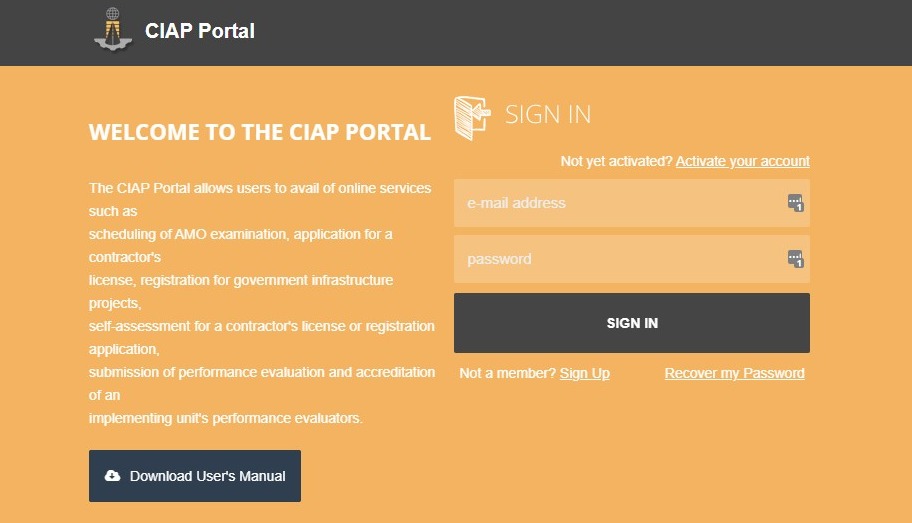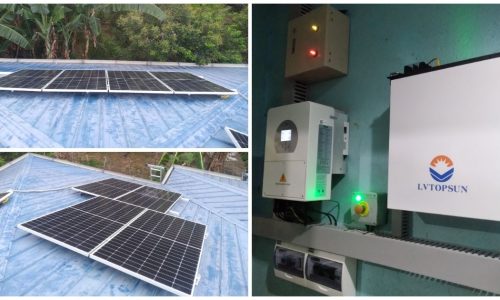If you are familiar with the construction field terms, then you’re probably hearing PCAB a lot when it comes to contractors. For those who are not familiar, PCAB or Philippine Contractors Accreditation Board is the regulating board of the contractors in the Philippines.
As per R.A. 4566 as amended by P.D. No. 1746, it is stated that “no contractor (including sub-contractor and specialty contractor) shall engage in the business of contracting without first having secured a PCAB license.)


Common questions
When filing for a contractor license, there are some questions that tend to confuse some people. Let’s discuss them first before listing the requirements needed.
Who should apply?
The owner/proprietor should apply. In case he or she cannot do so, an Authorized Managing Office or an Authorized Representative of the firm can apply on the owner’s behalf.
What are the types of licenses?
There are two types of licenses; Regular and Special. Regular licenses are granted to domestic contractors with at least 60% Filipino equity. Special licenses are needed by firms with foreign owners, “a joint venture, a consortium, a foreign contractor, or a project owner who authorizes the licensee to engage only in the construction of a single, specific project/undertaking.”
What is the validity of the licenses?
Unless canceled, suspended, or revoked by the board, a regular license will be valid for one fiscal year, that is from July 1 to June 30 of the following year. A special license, on the other hand, will be canceled by the board when the project to which it was applied for is done, even before the fiscal year.
How long is the issuance?
- According to the Construction Industry Authority of the Philippines, these are the processing time for licenses.
- New Regular License – 30 business days
- Renewal of Regular License – 10 business days
- Additional/Revision of Classification – 15 business days
- Upgrading of License Category – 30 business days
- Change of Authorized Managing Officer – 30 business days
- Change of Business Name & Status – 15 business days
- Change of Business Name – 15 business days
- Joint Venture-Local (New/Renewal/Re-Issuance); Consortium-Local (New/Renewal/Re-Issuance) – 5 business days
- Joint Venture-Foreign (New) ; Consortium-Foreign (New) ; Foreign (New) – 30 business days
- Joint Venture-Foreign (Renewal) ; Consortium-Foreign (Renewal) ; Foreign (Renewal) – 10 business days
- Registration for Government Infrastructure Projects – 10 business days
- Additional Project Kind – 15 business days
- Public-Private Projects (PPP) – 5 business days
Is it needed for architects’ and engineers’ design and build project?
According to Maestro Alfred, these professionals only need to secure a PCAB license if there are to work on a construction project apart from their own project. This means they will be entering an agreement with another firm apart from them.
What is an AMO Seminar?
It is a 2-day seminar that aims to equip the “contractor/applicant with the basic knowledge on construction safety, building and lien laws, taxation, labor and other relevant laws, and the basic principles of the construction business.” It should be attended by the owner or the Authorized Managing Officer of the firm.
What is an STE?
A Sustaining Technical Employee is a licensed professional employed in the firm. He should have at least three years of relevant experience.
What is COSH?
“The Construction Safety and Health Seminar is a forty (40)-hour seminar that is intended to equip the contractor/applicant with the knowledge on standard occupational safety, health, practices, and processes in the construction industry. ”
How much are COSH and AMO?
COSH costs around Php 5,000 to Php 7,000, while AMO costs around Php 3,500 to Php 5,500.
Application
Before 2020, when the pandemic struck, the process is to submit the duly accomplished forms is to go directly to DTI offices. However, in May 2020, the DTI via the Philippine Information Agency released a statement that PCAB licenses will still continue to be granted to applicants through email.
“The PCAB made this announcement through its official Social Media page on 29 April citing PCAB Board Resolution No. 052 Series of 2020 or the Guidelines for Acceptance of Application via E-mail. Through e-mail, applicants may send their notarized duly accomplished application forms along with the other documents as listed in the checklist for their respective category.”
Here is a simplified process that you can easily get from a simple Google search:
- Download an application form.
- Accomplish the form properly and attached corresponding supporting documents.
- Submit application for checklisting/prescreening.
- Pay the required upfront fee.
- Wait for license release. Approved license will be mailed directly to the owner/firm via courier.
Requirements
For a new regular license, you will need the following:
A. Legal
- Affidavit of Attestation
- Integrity Pledge
- Contractor’s General Information
- Certified true copy of Business Name Registration Certificate
- Proofs of Employer’s membership with SSS, PHILHEALTH and PAG-IBIG;
- Authority to verify documents with Depository Bank, BIR and other Government Agencies
B. Technical
- Authorized Managing Officer (AMO) Affidavit
- Original NBI Clearance;
- Certificate of Attendance of 2-day AMO Seminar
- Certificate of Completion 40-hour Construction Safety and Health Seminar (COSH);
- Sustaining Technical Employee/s (STE/s) Affidavit of Undertaking with copy of valid PRC ID/s
- Original NBI Clearance/s;
- STE/s Affidavit of Construction Experience
- STE/s Personal Appearance
- Certificate of Completion of 40-hour Construction Safety and Health Seminar (COSH) of at least one (1) of the qualified nominated STEs;
C. Financial
- Complete Audited Financial Statement (AFS) with accompanying Auditor’s Opinion Report and Notes dated within the last six (6) months immediately preceding the filing of application
- For EXISTING/OLD companies: AFS for the immediately preceding taxable year and copy of Annual Income Tax Return (ITR) and Quarterly ITR certified by the BIR;
- Schedule of Receivables
- Construction in Progress: Schedule with complete details (if the amount exceeds 10% of the Net Worth);
- Appropriate documents in support of Other Assets;
D. Others
- Authorized Representatives Affidavit
- Original signature (preferably with blue ink) of AMO on each and every page of the application forms including supporting documents.
Process



- Create an account on the portal at http://ciap-portal.dti.gov.ph/.
- Make sure you use your official company email because this cannot be changed anymore.
- Once done, a verification email will be sent. Just click to verify.
- Once you log in, go to PCAB Local Registration.
- Click Applications.
All supporting documents and everything you need is in the portal. The dashboard is also complete with reminders and to-do to make sure you don’t overlook any application you have.
For more details visit the CIAP website.





No Responses